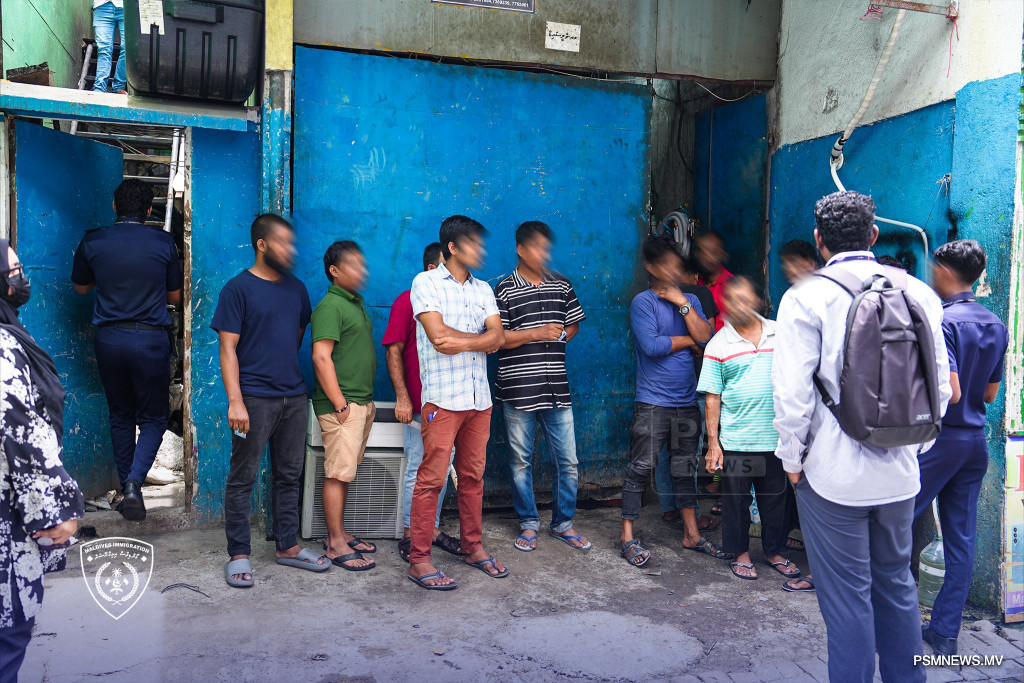
The government is poised to implement stringent measures against individuals and entities involved in the exploitation of foreign workers, with strict enforcement set to begin from Monday.
This initiative marks a crucial step in the government's broader efforts to tackle the prevalent issue of undocumented foreign workers in the Maldives, being addressed through a comprehensive three-phase strategy in collaboration with relevant agencies.
The Ministry of Homeland Security and Technology highlights a growing crisis where large sums are taken from foreigners who are then brought into the Maldives and effectively abandoned, often without their official documents.
This practice frequently funnels them into the undocumented immigrant population, contributing to human trafficking and a breakdown of regulatory control, as their details are not properly registered upon entry.
To combat this, the government has outlined a clear framework of penalties.
From Monday, individuals found exploiting foreign workers will face immediate action. Employers who neglect the foreigners they bring in, fail to pay salaries, exploit workers, assign them to jobs different from their permits, or neglect to fulfill basic legal and regulatory requirements will incur a fine of USD 3,242 under the Employment Act. More severe infractions falling under Article 65 of the Employment Act will attract a hefty USD 6,484 fine.
The urgency of these measures is underscored by the escalating number of undocumented immigrants who have not paid work permits, visa fees, and other state dues.
Such individuals are reportedly engaging in significant unrecorded economic activities and causing growing social and health concerns within the Maldivian community.
In response, the government has initiated data collection on all foreigners, actively working to integrate them into the expatriate system. Employers are now mandated to settle outstanding fees for their foreign workers, with non-compliant entities facing suspension from the expat portal. A grace period of one year has been granted for the payment of these accumulated fees, signaling a determined push to regularise the foreign workforce and uphold the rule of law.
